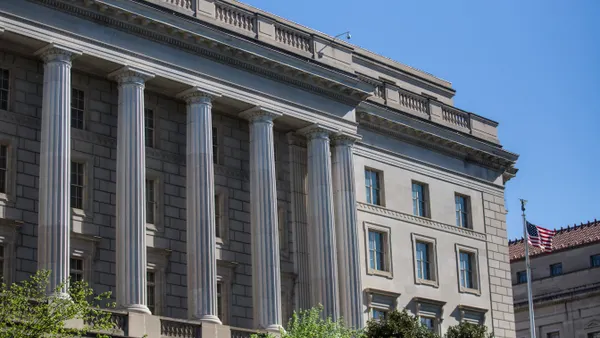Dive Brief:
- Shareholders of U.S. companies filed 122 proposals focused on combating climate change as of mid-February, a record rate of filing that coincides with plans by the Securities and Exchange Commission to require disclosure on climate risk, according to shareholder advocates.
- Proponents for change on environmental, social and governance issues have filed 542 shareholder resolutions, many of which will be brought up for a vote during the height of the proxy season from mid-April until mid-June, according to Proxy Preview 2023, which counted the proposals through Feb. 17.
- “The vast majority of a new generation of retail investors, 401(k) plan participants, pensioners, family offices and others who until now have been on the sidelines of proxy voting support company policies and practices moving toward justice and sustainability,” according to Andrew Behar, CEO of As You Sow, a shareholder advocacy group and co-author of the report.
Dive Insight:
Debate has intensified in recent months over whether the SEC should require publicly-traded companies to release detailed reports on their ESG performance, including workforce composition and their approach toward climate change.
The SEC has indicated that it plans before May to release a final rule mandating that companies describe on Form 10-K their strategy toward climate risk, including plans to achieve any targets they have set for reducing such risk.
Companies would need to disclose data on their greenhouse gas emissions, either from their facilities (so-called Scope 1 emissions) or through their energy purchases (Scope 2). They would also need to obtain independent attestation of their data.
In some of more than 14,000 comment letters on its proposed rule, the SEC has come under fire for planning to require companies to disclose so-called Scope 3 carbon emissions by suppliers and vendors across their supply chains.
Several states — including Florida and Texas — have opposed efforts to weave ESG criteria into investment decisions and barred some asset managers that use sustainability benchmarks from involvement in state pension funds. The state officials say some financial institutions push an ESG agenda at the expense of investor returns.
“The proliferation of ESG throughout America is a direct threat to the American economy, individual economic freedom and our way of life, putting investment decisions in the hands of the woke mob to bypass the ballot box,” the Republican governors of 19 states said in a March 16 open letter.
The governors, along with Republicans in the Senate and House of Representatives, upbraided President Joe Biden for opposing congressional repeal of a Labor Department rule allowing the asset managers of retirement funds to consider ESG factors when making investment decisions. Biden vetoed the legislation on March 20.
“This is no place for political theater,” Behar said in a statement. “Some asset managers’ willingness to assess clear risks and opportunities may have chilled, however, most investors view the anti-ESG activities as anti-capitalist and, ironically, as anti-conservative.”
Roughly 60% of financial services executives believe that assessing ESG performance will become a mainstream practice in asset management within the next 10 years, according to HSBC.
Twenty percent rule out such an outcome, HSBC said, describing a global survey last month with 422 respondents at 390 institutions managing $11.5 trillion in assets.
More than 270 companies and institutional investors — including state pension funds in New York and California — released a statement on Thursday affirming their commitment to sustainable business and investment.
“Neglecting the robust economic benefits of the clean energy economy — and the substantial public and private investment opportunities that are necessary to achieve this shift — would represent a failure to build a stronger, more resilient U.S. economy and a betrayal of the interests of our stakeholders, shareholders, beneficiaries, customers, and the communities where we do business and live,” the signatories said.















